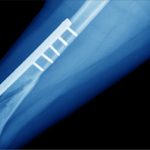Recurrence of blood cancer typical means a comeback of the already existing cancer cells post-treatment of a patient. The period after which such a recurrence can happen is indefinite. If one has been exposed to cancer cells once it may mean it can happen again, within days, weeks, months, or maybe years later.

Leukemia recurs in two cases:
- Induction failures are patients who fail to achieve an initial complete disappearance or remission of their cancer following two or more courses of remission induction chemotherapy
- Patients who achieve a complete remission to initial treatment and then experience a cancer recurrence have relapsed leukemia. Relapse of leukemia may occur several months to years after the initial remission;
However, the majority of relapses occur within 2 years of initial treatment.
Diagnosing recurrent cancer:
A formal follow up plan is given to any patient who has undergone cancer treatment. This plan includes a schedule for visits to the doctor, careful physical examinations, and possibly other tests. These visits and tests are essential to make sure you are healthy and to watch for a recurrence.
Treatment Options For a Recurrence :
If cancer recurrence or remission does not happen in the treatments, a patient has two options. Since continuing the existing treatment may rarely have a positive effect.
A palliative approach can be adopted, where drugs are administered in non-toxic doses to keep the disease under control for as long as possible. The emphasis is on the quality of life and supportive care measures in such a case.
Another approach is to receive more intensive treatment in an attempt to produce a complete remission.
There are two intensive strategies for the same:
- A bone marrow or blood stem cell transplant offers a possibility for control or cure of leukemia, which for younger patients.
- To participate in clinical trials evaluating new treatments.
Bone marrow transplantation:
Bone marrow contains many leukemia cells, which makes autologous stem transplantation or high dose chemotherapy a rare option to patients who fail remission induction therapy; however, allogeneic stem cell transplant might work.
The patients with complete remission need autologous stem transplantation or high dose chemotherapy in most cases. However, this can only happen if the survivor has opted to store their stem cell collected at the initial remission. Stem cell collection after relapse is less successful since less than half of patients receiving reinduction chemotherapy achieve a second remission. Patients without previously stored stem cells, therefore, are often treated with allogeneic stem cell transplant or additional chemotherapy.
In these settings, allogeneic stem cell transplantation offers the only prospect of long-term disease-free survival. If a compatible family member donor or autologous stem cells are not available, there should be a search for an unrelated donor or an umbilical cord source of stem cells.
Clinical trials:
Clinical trials are research studies where people are involved in the test of the effectiveness of treatment. Through these, doctors find new ways to improve treatments and the quality of life for people with the disease.
Clinical trials are the final step in a long process of evolution of a certain kind of treatment which starts with lab research. However, few things need good thought before entering into any of such trials, like:
- The progress of the method
- The risk factors involved
Participating in clinical trials is crucial in the development of existing cancer treatments. All the types of treatment available today were clinical trials in the past. Participating in them may not only increase the chances of one’s remission but also the evolution of a new treatment.
Coping With Recurrence of Cancer:
A recurrence causes anguish, and distress one has gone through in the initial stages of cancer. Self-doubt and fatigue is a prevalent emotion in many patients with recurrence. It is good to observe negative emotions when the fight one has put up proves to be not enough.
However, the patient should be able to convert them into positivity. The fact that they have already dealt with a similar situation and didn’t lose should be their main strength. Counseling is vital to the patient at this stage. The patient needs much support. Family plays a crucial part in addition to the doctor giving assurance that the patient can cope with the disease.
Survivorship clinics:
A few treatment centers provide survivorship or follow up cancer care clinics. These clinics provide a complete and distinct approach to monitoring and supporting cancer survivors. They make sure that the patient’s follow-up care plan is regular. They keep track of the patient’s visits to the doctor and their overall health.



